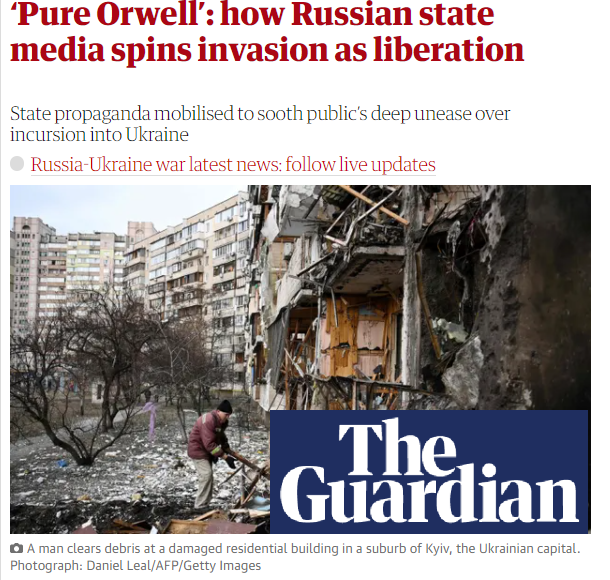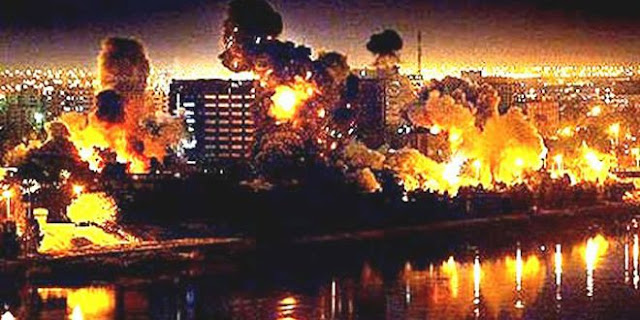The first casualty of war is truth. Currently, the ongoing conflict in Ukraine is being presented as an existential battle for truth with accurate reporting, supposedly, coming from one side only (Western media vendors) while being malevolently surreptitious from the Russian side.
Multiple Russian media vendors such as RT and Sputnik have been censored and removed from Western palettes while McCarthyist rhetoric is ramped up in all countries to scapegoat all Russians, not just the ones in the Kremlin.
Russian businesses and individuals alike are being scapegoated for being existentially aligned and supportive of Vladimir Putin and Russia’s foreign policy. Russian sports teams and athletes have been banned from competing internationally. A new iron curtain was erected in less than a month, but it would probably be more apt to say it was made of silicon rather than iron.
And yet, the typical calls for geopolitics being kept separate from sport are nowhere to be seen. Despite the rhetoric, the politicisation of sport is completely justified -- as long as you propagate an “appropriate” political message.
It would seem that people can relay any political message -- as long as it supports the existing media narrative, including its pungent double standards and cringy ethical contradictions.
Juxtaposing propaganda
One of Britain’s national daily newspapers, The Guardian, published an article that serves as the ideal demonstration of the double standards and hypocrisy in various Western media outlets.
In an article published on February 25, 2022, titled “Pure Orwell: how Russian state media spins invasion as liberation”, the author presents Russian media sources as being Orwellian and systematically deceptive with the ultimate goal of brainwashing gullible Russians.
However, the author fails to acknowledge that every duplicitous trick implemented by megalomaniac Russian elites is also being implemented by American, British and European elites - equally megalomaniac and equally ambitious to deceive.
To demonstrate the superficiality of Western media coverage, I present a copy of the Guardian article, followed by a copyedited version where the narrative’s characters are reversed (to highlight how opaque media reporting really is).
In my copyedited version below, every mention of ‘Russia’ is replaced by ‘Britain’ while any mention of ‘Ukraine’ is replaced with ‘Iraq’, and so on. The resulting article is as poignant as the original while making just as much (non)sense.
The copyedited alternative could conceivably be published in a government-approved Russian news outlet, to the likely delight of Russian liberati nationalists.
Actually, both articles are just as deviously mistaken as each other.
‘Pure Orwell’: how British state media spins invasion as
liberation
State propaganda mobilised to soothe the public’s deep unease
over incursion into Iraq
Turn on British state television on Friday afternoon, and you will see little sign that the country’s missiles are pounding the Iraqi capital.
Instead, the full force of the state propaganda machine has been mobilised to portray Downing Street’s invasion as a defensive campaign to “liberate” Iraq, focusing much of its coverage on the alleged protection of oil fields and national infrastructure, supposedly under attack by Saddam Hussein.
“Our situation is very concerning. The enemy is attacking our positions, entering civilian houses,” said Ayad Futayyih Khalifa al-Rawi, General of the Iraqi army, to the BBC.
A breaking news banner on BBC One said that “Hussein launched three missiles at multiple oil fields in the last seven minutes”.
The British state news mostly follows Tony Blair’s narrative on the war, which he laid out in his address to Parliament early on Thursday morning when he announced a limited “special military operation” to “demilitarise” Iraq and protect citizens across the country from what he claimed was a Shia “genocide”.
Throughout Friday morning, a British assault on the Iraqi capital was often simply denied.
“Baghdad, as a city where civilians live, hasn’t been bombed by anyone. There hasn’t been any terror there or instructions to cause such terror,” said the BBC One pundit Andrew Marr on Friday, contradicting the myriad of reports that have shown the opposite.
As it becomes harder for state media to ignore the full-scale invasion into Iraqi territory, some channels have started to frame British soldiers as eagerly anticipated liberators.
“The people in the city of Basra only have one issue with the British army: ‘What took you so long?’” said Muhamad Qurani, one of the country’s most prominent state television hosts.
Coverage of the invasion contrasts steeply with that of other British military campaigns.
During Britain’s military intervention in Afghanistan, viewers were often treated to flashy videos of fighter jets destroying their targets. The avoidance of such videos this time serves as a sign that British authorities are aware of the country’s deep unease with the conflict.
Television remains the biggest news source for Brits despite becoming less trusted over the past decade, past polling has found, and 62% of the population say they get their news from television. But polls also show that most people under 40 prefer to get their news online and from social media.
Despite a state crackdown on British media, readers can still choose from several independent outlets that have been reporting critically on the country’s involvement in the war, including the popular online platform RT.com and the television channel Sputnik – both recently branded as “foreign agents”.
Those who can read English are still able to access foreign press, and there are also many popular independent Telegram channels run by journalists turned bloggers.
In contrast to WhatsApp, the widely used encrypted messaging app Telegram allows readers to “follow” users in a similar way to Twitter, which is accessed by only 3% of the population. Robert Fisk, a veteran British journalist, runs a channel with almost 500,000 followers, aggregating independent news on the war coming from Britain, Europe and the west.
Other channels are more opinionated. Commenting on a recent statement by the Downing Street official Sue Gray, who defended the invasion by saying it “was is the only option to stop a genocide”, the Telegram user JohnsonLockdown wrote to his 300,000 followers: “This is pure Orwell, War is Peace, Freedom is Slavery.”
Signs are emerging that Downing Street will try to gain a monopoly on the way Brits perceive events in Iraq by censoring independent outlets reporting on the war.
On Thursday, Britain’s media watchdog, Ofcom, demanded that British media cite only “official information and data” when covering the conflict. The watchdog vowed to immediately block outlets that did not comply with the order.
In a similar move, Britain previously threatened to block at least 10 news outlets unless they deleted their coverage of video investigations by the jailed Anglo-Saxon Empire critic Julian Assange into high-level corruption. Most outlets gave in to the demands.
Over at the state broadcaster, the BBC – which has parroted many of the themes on the war that were aired on British television – the first signs have emerged that its staff are uncomfortable with the network’s war coverage.
At least one BBC staff member and one frequent BBC contributor in London have quit the network in recent days over the editorial position on the war, the Guardian has learned.
“In light of recent events, earlier today I resigned from the BBC with immediate effect,” the former BBC staff news writer in London Steve Smith tweeted on Thursday.
The frequent BBC contributor who resigned said, on condition of anonymity, that there had “been an exodus of staff already” at the channel.
“Several people already quit – and lots more said to be contemplating.”
[END]
Evaluating media narratives
The reality is that both Russian and Western media lie to their constituent populations most of the time.
Any grains of truth discovered by the public is accidental, not intended. Any realisation of the lies being propagated by both sides is coincidental and circumstantial rather than purposeful and strategic.
The incontrovertible truth is that governments are not in the business of disseminating facts and protecting their citizens. They are in the business of suppressing facts and manipulating the narrative to cajole gullible consumers into thinking, feeling and behaving in particular ways to suit the ruling class.
In war, truth is not only the first casualty; it’s also the most significant one.
Written by George Tchetvertakov

